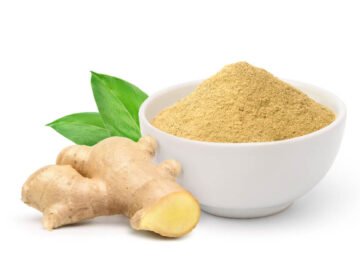
Tips for Maintaining Physical Well-Being
Achieving physical well-being involves maintaining health and fitness through various lifestyle choices. Physical well-being includes:
- Regular exercise
- A balanced and nutritious diet
- Ensuring sufficient sleep
- Managing stress
- Avoiding harmful substances
- Prioritizing self-care
So, regular physical activity, proper nutrition, sufficient rest, and mindful lifestyle choices contribute to a complete approach to physical well-being.
Components of physical well-being
Nutrition
Proper nutrition plays a significant role in physical well-being. Minerals and nutrients support bodily functions and ensure excellent energy levels. Proper nutrition is the key to a balanced and healthy lifestyle. Goof food plays an important role in restoring your health and improving your mood. Nutrition foods consist of a balanced diet rich in minerals, vitamins, proteins, carbohydrates, and fats which are all necessary for the body’s growth, repair, and energy.
Eating and enjoying proper nutrition supports important bodily functions, improves the immune system, and helps for the prevention of chronic diseases such as diabetes, obesity, heart disease, etc. Also, making sure you follow the proper nutrition helps with muscle development, bone health, and overall physical performance. So make sure you are consistent with your proper nutrition diet and then you shouldn’t worry about your health.
Exercise
Daily physical activity is an essential aspect of well-being. Because it helps improve physical and mental well-being, only looking good from the outside does not matter. It matters when you are fit from the inside, too.
Rest and sleep
Adequate rest and quality sleep are vital for physical recovery and mental rejuvenation. Sleep impacts hormone regulation, immune function, and cognitive performance.
Hydration
Staying hydrated is often overlooked but is crucial for bodily functions. Water supports digestion, nutrient transportation, and temperature regulation. As we all know and have heard enough water is very essential for maintaining the balance of bodily fluids, which are involved in digestion, circulation, absorption, and temperature regulation. It also helps lubricate joints and protect sensitive tissues.
If you are dehydrated you can face problems like fatigue, dizziness, and impaired cognitive and physical performance. If you are not hydrated for a long period, it can also lead you to serious health issues like kidney stones, urinary tract infections, and many more. So, it’s important to drink enough water and be hydrated enough for a functionally sustaining physical and mental well-being.
Indicators of Physical Well-being
Vital sign
Observing vital signs like heart rate, blood pressure, and respiratory rate provides insights into overall health and helps detect potential issues.
Body Mass Index (BMI)
BMI is a valuable metric for assessing weight relative to height. Maintaining a healthy BMI is linked to a lower risk of health problems.
Energy levels
Feeling consistently energized is a positive indicator of physical well-being, reflecting a harmonious balance of nutrition, exercise, and rest.
Overall Health
General well-being includes factors like skin health, immune system function, and the absence of chronic conditions.
The Connection Between Physical and Mental well-being
Holistic Health
The association between physical and mental well-being is symbiotic. Holistic health acknowledges this connection, emphasizing the importance of treating the whole person.
Impact of Exercise on Mental Health
Regular exercise not only enhances physical fitness but also has profound effects on mental health, reducing stress, anxiety, and depression.
Nutrition and Cognitive Function
Nutrient-rich diets positively impact cognitive function, supporting memory, concentration, and overall mental clarity.
Strategies for Improving Physical Well-beings
Balanced Diet
Eating various nutrient-dense foods ensures the body receives essential vitamins and minerals for optimal functioning.
Regular Exercise Routine
Incorporating cardiovascular and strength training exercises into a routine supports overall fitness and well-being.
Quality Sleep
Creating a conducive sleep environment and prioritizing a consistent sleep schedule are essential for restorative sleep. Quality sleep plays an important role in overall health as it helps the body to repair and refresh itself. When we sleep, essential processes like muscle growth, tissue repair, and hormone regulation occur which are important for maintaining physical health.
Also, when we get quality sleep improves cognitive functions including problem-solving, decision making while reducing our stress. So, it is very important you get enough sleep otherwise it can also lead to a weakened immune system, risk of chronic diseases, and so on. So you must get quality sleep to sustain overall health and physical well-being.
Stress Management Techniques
Mindfulness, meditation, and deep breathing can support and manage stress and promote well-being.
Role of physical well-being
Health maintenance
Regular physical activity, balanced nutrition, and sufficient rest contribute to maintaining good health. Exercise helps prevent chronic diseases like heart disease, diabetes, and obesity.
Energy Levels
Regular physical activity improves cardiovascular health, enhancing the efficiency of the heart and lungs. In turn, this leads to increased energy levels and stamina. Proper nutrition is necessary to provide the required nutrients for energy production.
Immune System Support
Adequate exercise and a balanced diet contribute to a robust immune system, decrease the risk of illness and promote faster recovery when sickness occurs.
Prevention of Injuries
Physical fitness enhances flexibility, strength, and coordination, reducing the risk of injuries. Strong muscles and bones provide better support for the body’s structure.
Weight Management
Physical health contributes to maintaining a healthy weight. Regular exercise with a balanced diet helps manage weight and decrease the risk of fat-related diseases.
Self-esteem and confidence
Achieving and maintaining physical fitness goals can boost self-esteem and confidence. Feeling physically capable often translates into a positive self-image.
Physical activity is the basis of overall health. However, by promoting physical activity, proper nutrition, and rest, individuals can improve their physical health, mental well-being, and overall quality of life. We should follow a good diet and engage in regular physical exercise.















